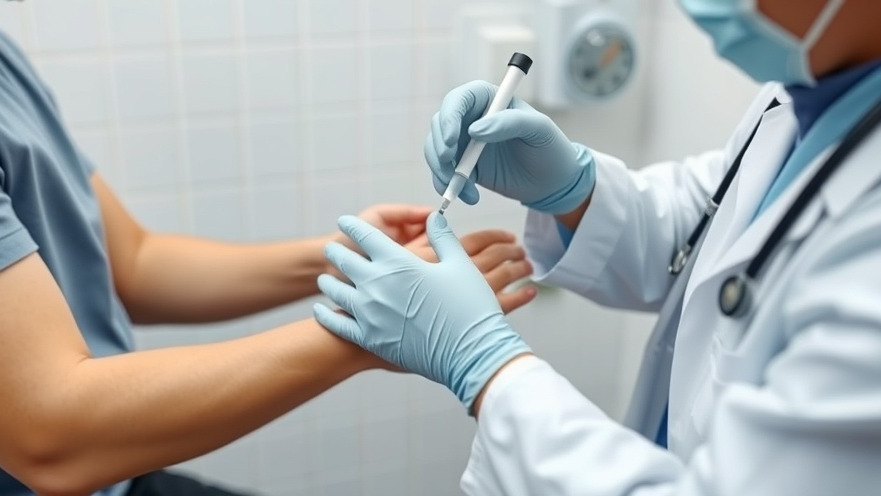
Understanding the Diabetes Epidemic
Diabetes has emerged as one of the most pressing health challenges globally, with alarming statistics shedding light on how widespread the condition is. Recent research conducted by the University of Washington's Institute for Health Metrics and Evaluation revealed that nearly 44% of adults aged 15 and older who suffer from diabetes are unaware they have the disease. This degree of ignorance could lead to devastating consequences, not just for individuals, but for public health systems around the world.
The Silent Growth of Diabetes
The implications of such widespread undiagnosed diabetes can be catastrophic. Projections suggest that by 2050, around 1.3 billion people will be living with diabetes. With this dramatic rise in numbers expected, the link between health awareness, access to testing, and successful management cannot be overemphasized. Detecting diabetes early is critical not only to prevent serious complications such as heart, kidney, and eye disease, but also to combat its escalation into a silent epidemic.
Why Are So Many Unaware?
If nearly half of those with diabetes are unaware of their condition, a significant part of the problem lies in the lack of education and preventative healthcare measures. Factors contributing to this oversight include socioeconomic barriers, limited access to healthcare, and inadequate public health initiatives. Particularly in communities that face systemic health inequities, such as low-income populations or racial and ethnic minorities, this lack of awareness becomes exacerbated. Such disparities highlight the need for focused health education and screening programs to provide critical information for effective management.
Effective Strategies for Prevention
The U.S. Preventive Services Task Force has made recommendations for screening adults aged 35 to 70 who are overweight or obese—a demographic at high risk for Type 2 diabetes. Those with additional risk factors such as family history or certain ethnic backgrounds should consider earlier screenings. Tests like fasting blood glucose levels, HbA1c, and oral glucose tolerance tests are vital tools for identifying prediabetes, enabling preventative measures to take shape before full-blown diabetes occurs.
The Complications of Untreated Diabetes
Diabetes can lead to several life-threatening complications, underscoring the importance of effective management and awareness. The Centers for Disease Control and Prevention estimates that diabetes contributes to the deaths of approximately 28.4 individuals per 100,000 Americans annually. Potential diabetic complications include cardiovascular issues, kidney failure, nerve damage, and vision loss. These preventable outcomes underscore the importance of proper diabetes care and awareness among those afflicted.
How to Take Charge of Your Health
For anyone in Maryland — and notably within the various counties, it’s essential to recognize the importance of regular health screenings and to educate oneself on risk factors associated with diabetes. Whether by consulting with healthcare providers or leveraging community resources aimed at promoting access to relevant health information, individuals must proactively engage with their health. Furthermore, anyone who suspects they may be at risk should not hesitate to pursue screening.
The Power of Community Awareness
Maryland offers a range of community health initiatives aimed at combatting diabetes. Outreach programs, local health fairs, and partnerships with community organizations can help bridge the gap in awareness and access to testing. Engaging your neighbors and participating in local discussions can fuel a sense of collective responsibility, further empowering community members to manage their health effectively.
Remember, knowing your health status is the first step toward prevention and successful management. For those navigating life with diabetes—or at risk of developing it—the time to act is now. With proactive measures, education, and support, we can change the narrative around diabetes awareness.
Join the Movement for Health Awareness
If you or someone you know is at risk for diabetes, consider engaging with local health initiatives or seeking a diabetes screening today. Awareness is the first crucial step in combating this silent epidemic.
 Add Row
Add Row 
 Add Element
Add Element 


Write A Comment